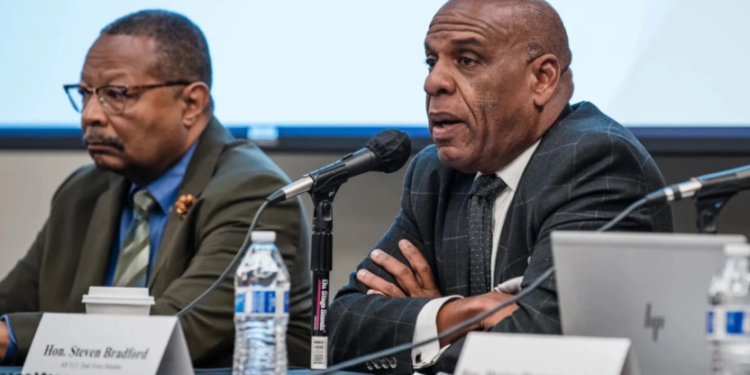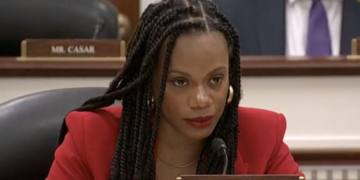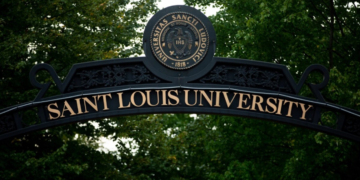Sep 9, 2024 Story by: Editor
Amid the aftermath of two legislative bills’ defeat, reparations advocates in California are preparing for a challenging battle they believe could extend over the next decade. They are currently debating whether to address their internal divisions through reconciliation or through aggressive political maneuvers.
Some supporters of the proposed bills, which aimed to create a fund and agency to oversee reparations in California, are considering retaliation, including a campaign to recall the legislators who blocked their passage.
The defeat has led to a significant divide between those advocating for reparations and the California Legislative Black Caucus. The caucus has opted for a more gradual approach, successfully preventing the bills from reaching a vote on the Assembly floor last Saturday.
Instead, the caucus focused on advancing 14 other legislative measures derived from the recommendations of a state reparations task force. Many of these bills have successfully passed and are now on their way to the governor’s desk. Caucus leaders highlight this package as a significant achievement, including legislation that establishes a process for restoring property taken from victims of racially motivated eminent domain.
Political analysts note that California Democrats are attempting to balance the needs of reparations advocates and Black voters while avoiding backlash from other constituents.
Tatishe Nteta, a political science professor at the University of Massachusetts Amherst, conducted a national poll in 2021 that revealed 67% of respondents opposed the federal government providing cash payments to the descendants of enslaved individuals. A more recent survey indicated that 61% share this sentiment. Nteta described cash payments as “consistently and uniquely unpopular,” although public opinion is gradually shifting in favor of reparations.
“Until the (reparations) movement itself can agree upon what a reparations program should look like, you’re not going to see any entrepreneurial member of the Legislature, who is outside of that movement, make a case or a claim, and use their own political capital on what is a holistically unpopular policy,” Nteta remarked.
He added that support for reparations tends to grow when cash payments are not involved. Other measures recently approved by the Legislature include one requiring the state to apologize for its historical role in harming Black Californians, and another aimed at eliminating hair discrimination in competitive sports.
Proponents of monetary reparations characterized the defeat of their bills as undermining the work of the California Reparations Task Force, which produced a comprehensive 1,000-page report with over 200 recommendations following two years of public hearings.
The bills, introduced by Inglewood Democrat Steven Bradford during his final term as a state senator, were presented separately from the 14-bill package backed by the California Legislative Black Caucus. Despite the presence of numerous protesters advocating for a vote, the Black Caucus and Democrats chose not to bring Bradford’s bills to the Assembly floor on Saturday.
“I think it’s going to send a bad message across the country that a state as progressive as California didn’t have the votes, so to speak, on a bill that pretty much had been run through all the traps,” Bradford stated, noting that his bills had made it through the Senate and Assembly committees with little alteration. He recalled that all members of the Black Caucus had co-authored the bills back in May.
Supporters described the defeat as a severe setback for those who have tirelessly fought for reparations in California. It also highlights underlying challenges faced by complex racial justice movements, even within a state where Democrats must secure Black voter support.
Rumors began circulating just days before the legislative session concluded. “It was minutes away from coming up on the agenda, and we have everybody up there; we’re so excited,” recalled Chris Lodgson, an organizer with the Coalition for a Just and Equitable California, who has collaborated with state lawmakers on reparations since 2019.
“And I turn around, and I see some of Bradford’s staff came up to the third floor, and I could see it in their eyes. I could see it in their faces. ‘We got a problem,’” he recounted.
California’s innovative reparations efforts have inspired similar initiatives across the nation. Now, following this recent setback, emotions remain high as lawmakers and advocates ponder their next steps.
“The trust is completely broken between the Black Caucus and reparations organizers,” Kamilah Moore, chair of the state’s historic reparations task force, stated.
Some advocates are contemplating retaliation, including efforts to recall members of the Black Caucus. They plan to attend town hall meetings in the districts of certain legislators, and at least one group has lodged an ethics complaint with the special committee on legislative ethics against the caucus. The complaint alleges corruption and undue influence affected the bills’ outcomes.
“There has to be a political price to pay,” Lodgson asserted. “I don’t know if these people can remain in office. To be honest, I don’t think these people can remain in office.”
Bradford responded that such threats are “totally unnecessary.”
“That’s wasted energy. We should find a way to work in a constructive manner,” he expressed earlier this week.
Nonetheless, feelings of hurt and anger persist.
“This hurts in a different way because what we saw was our own people stop our own people. That hits differently,” Lodgson said.
Assemblymember Tina McKinnor, a Democrat from Inglewood, shared her personal connection to the issue, stating that her family has traced its genealogy back to enslaved individuals in the United States.
“I am fully supportive of reparations for descendants of enslaved people,” she said. “It hurt me too. I know they were hurt.”
Assemblymember Lori Wilson, chair of California’s Legislative Black Caucus, acknowledged that translating the task force’s recommendations into actionable policies would be a long-term process. She emphasized that it was anticipated some bills would require multiple legislative sessions to reach fruition.
“(The Black Caucus) is absolutely committed to the recommendations that have come out of the task force, and to getting those across the finish line,” Wilson stated on Saturday, adding that Bradford’s bills would be reintroduced in the following year.
Last year, a state task force suggested that eligible Black residents could receive up to $1.2 million in reparations for racial harms inflicted by California, including shorter life expectancies, excessive policing, housing discrimination, lost business opportunities, and property seized through racially motivated eminent domain.
On a national level, conservatives have seized on this dollar figure to argue against what they perceive as left-wing excess.
The task force discussed various methods for distributing reparations, such as tuition or housing grants, before ultimately voting for direct payments as compensation for economic disparities. The Federal Reserve Bank of St. Louis reported that the average Black family in America is worth $23,000, compared to $184,000 for the typical white family. Approximately 6.5% of California’s population is Black.
McKinnor affirmed that the Black Caucus intends to eventually pass legislation encompassing all recommendations from the task force.
“We have a plan,” she stated. “A five- to ten-year plan. We plan on doing all the recommendations. Not one. We’re trying to close the wealth gap.”
In 2020, Gov. Gavin Newsom enacted the law establishing the task force and allocated $12 million from the state’s budget this year to implement new initiatives. However, he has been noncommittal regarding specific financial figures he would be willing to allocate to eligible Black Californians, reiterating that reparations encompass more than just cash payments.
Newsom remarked on Friday that members of the Black Caucus deserve an apology for the backlash from reparations advocates.
“The members of the Black Caucus did not deserve to be attacked in their integrity … that was disgraceful. There are members of the Black Caucus that are owed an apology,” Newsom stated.
In the days leading up to the bills’ expected votes, Newsom’s office expressed concerns regarding the costs associated with establishing the state agency, according to Bradford.
“I’m just disappointed,” Bradford said. “We have to remember the words of Dr. Martin Luther King and accept finite disappointment but have infinite hope. I have infinite hope we will get this done, and it was never about me to begin with.”
Not all responses were negative.
The Alliance for Reparations, Reconciliation, and Truth, a coalition of California Black power and justice organizations, expressed support for the measures the caucus advanced to the governor this session.
“While some important proposals may have failed this time, we acknowledge the complexities of the current fiscal and political environment and remain committed to advocating for meaningful and impactful progress. We urge our community and allies to remain steadfast,” the group’s statement read.
The alliance comprises Black Equity Collective, the California Black Power Network, Catalyst California, Equal Justice Society, Live Free California, and former reparations task force members Cheryl Grills, Lisa Holder, Jovan Scott Lewis, and Donald Tamaki.
Assemblymember Corey Jackson, a Democrat from Moreno Valley and member of the Black Caucus, stated that this legislative session represented “an important step forward in our journey toward reparations.”
“While we did not get every bill across the finish line, we are proud that the majority of our legislative package has made it to the governor’s desk,” an emailed statement read.
However, other advocates argue that the approved measures do not qualify as reparations—defined by them as necessitating compensation—but rather as racial equity bills.
The United Nations has defined reparations as “proportional to the gravity of the violations and the harm suffered.” According to international standards, compensation is essential for a measure to be regarded as reparations. Another crucial component is satisfaction, meaning those affected must feel that the actions taken adequately address the injustices suffered.
Nteta, the UMass political scientist, noted that despite the political trepidation surrounding cash reparations, public beliefs can evolve over time, paving the way for new policies. “At this moment in time, there is a perception that supporting a reparations policy potentially could have some damage on your political future,” he stated. “But over time, I think that perception can change.” Source: US News

















